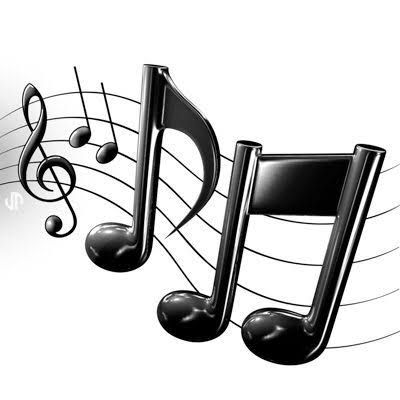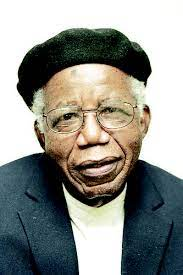Welcome readers! This blog is written in response to the task assigned by Megha Ma'am from Department of English, MKBU. This blog deals with the paper of African Literature. This blog is a part of thinking activity and it carries the detailed information, summary and analysis of Gabriel Okara's Poem - 'The Piano and The Drums.'
The Piano and The Drums - Gabriel Okara
In the poem, the piano and the drums, the poetic persona shows the difference between the normal lifestyle of Africans and that of the modern world. The setting of the poem, as is seen in the poem, dates from the advent of civilization to the modern time. The central theme of the poem hinges on the effect of foreign culture to Africans. This theme he elaborates using the effect of music on the poetic persona as an analogy. The poem tries to emphasize the purity of African content before the interference of civilization.
In essence, Gabriel Okara perceives the desecration of the African way of life from the musical perspective, and comes out to lament about it through the instrument of poetry.
When at break of day at a riverside
I hear jungle drums telegraphing
the mystic rhythm, urgent, raw
like bleeding flesh, speaking of
primal youth and the beginning,
I see the panther ready to pounce,
the leopard snarling about to leap
and the hunters crouch with spears poised.
And my blood ripples, turns torrent,
topples the years and at once I’m
in my mother’s laps a suckling;
at once I’m walking simple
paths with no innovations
rugged, fashioned with the naked
warmth of hurrying feet and groping hearts
in green leaves and wild flowers pulsing.
Then I hear a wailing piano
solo speaking of complex ways
in tear- furrowed concerto;
of far away lands
and new horizons with
coaxing diminuendo, counterpoint,
crescendo, but lost in the labyrinth of its complexities, it ends in the middle of a phrase at a daggerpoint
And I lost in the morning mist
of an age at a riverside keep
wandering in the mystic rhythm
of jungle drums and concerto.
“… Speaking of
Primal youth and the beginning
I see the panther ready to pounce
The leopard snarling about to leap
And the hunters crouch with spears poised”
All is action and natural. The poetic persona with a straight use of imagery and comprehensible words draws the reader's attention to the fact that everything about this sound is in their natural states using words like, “riverside, jungle, raw, fresh,” names of animal in the jungle – natural habitat, and the last line of the stanza speaking of a hunter with spear ready to strike and hunt. Everything about this stanza depicts the freshness of nature and life as of the old.
Stanza Two :- Once again, the poetic persona remembers of years back when he was still an infant in his mother’s laps suckling her breast (lines 9 to 11). Suddenly, he is walking the paths of the village with no new ideas of a way of life different from the one he is born into :
“At once I’m walking simple
Paths with no innovations,
Rugged, fashioned with the naked
Warmth of hurrying feet and groping hearts
In green leaves and wild flowers pulsing.”
Stanza Three :- Then, here in stanza three, reality changed as the poetic persona came in contact with a different sound from a faraway land :
“Then I hear a wailing piano
Solo speaking of complex ways in
Tear-furrowed concerto;
Of far-away lands”
The change in the sound came with a different instrument other than African native drum, and it also produces a sound that is different with so many musical technicalities which the poetic persona expresses with musical dictions in words like, “concerto, diminuendo, crescendo.” He deploys them to emphasize the difficulty in understanding this new sound
“… but lost in the labyrinth
Of its complexities…”
Consequently, in the last four lines, the poetic persona laments on the level of confusion the new sound brings when it mixes with the drums :
“And I lost in the morning mist
Of an age at a riverside keep
Wandering in the mystic rhythm
Of jungle drums and the concerto”
On a general note, the poet discusses the confusion that is created when western culture mixes with African culture. Any attempt to unify the two results to confusion and disorder. Therefore, one is keenly advised to abhor such style of life. If you want to be African, be it, otherwise, live like the white man. The poetic persona is not against choosing any of the cultures, but don’t mix them together. Indirectly, he warns us against becoming whiter than the white themselves or more civilized than civilization.
Structure of the Poem :- It is a poem of three stanzas with 29 lines. It has no consistent rhyming scheme, hence one can say that it is mainly a free verse.
Diction of the Poem :- The language of the poem is simple, visual and intelligible.
Mood / Tone of the Poem :- The mood of the poem is that of dilemma, mixed feelings and confusion, and the tone is that of lamentation.
Conclusion :- To Conclude, In "The Piano and the Drums," Okara masterfully contrasts the Western piano with the traditional African drums, symbolizing the clash of cultures. While the piano's music is technically refined, it lacks the raw emotional power of the drums that speak to the African soul. The poem celebrates the enduring spirit of African culture, warning against the erosion of cultural identity. Through vivid imagery, Okara affirms the importance of preserving traditional art forms and embracing one's roots in the face of Western cultural dominance.
Thank you so much for reading this blog..







No comments:
Post a Comment